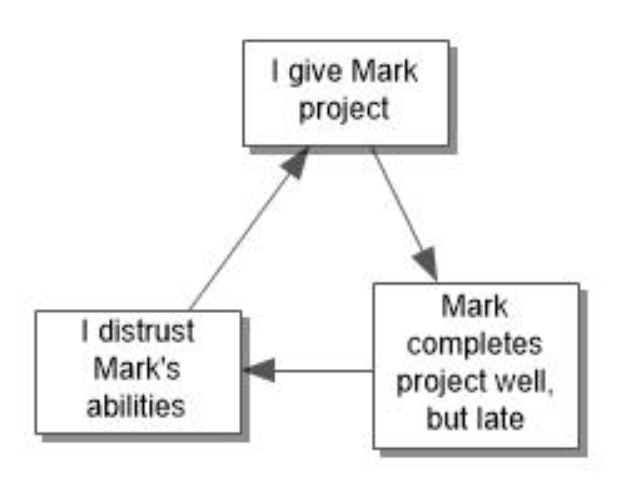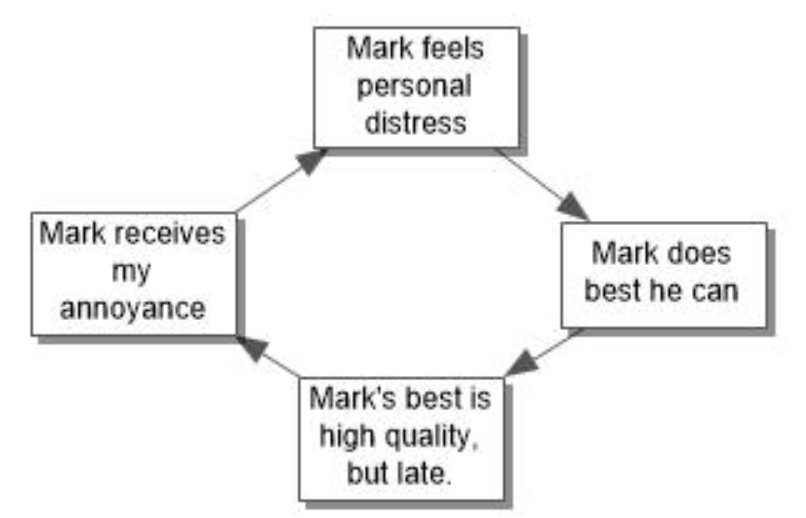View Content #27231
| Contentid | 27231 |
|---|---|
| Content Type | 3 |
| Title | A Detrimental Commitment to Our Expectations |
| Body | By Mandy Gettler, CASLS Associate Director This Topic of the Week is part of our July series on self-care. It expands upon Disposition 1: Suspend Judgment. We all know Mark: the chronically late coworker. Late to work, late to meetings, late to finish a project. My Mark was even worse. He wasn’t just late all the time, he also communicated poorly about these things. Would Mark send me his piece of a project on time? Would it be a day late? A week late? I had absolutely no idea. Even if I had asked, Mark himself never knew. I labeled Mark as someone who was undependable, despite the high quality of his work when he did turn it in. I finally scheduled a time to talk with Mark. I closed the door to my office and began, “Mark, your work is amazing and incredibly high quality. When you do it. I can’t depend on you to do actually do any work.” I hadn’t gotten to my real question – what are we going to do about your lack of dependability? – when he burst into tears. I had been committed to telling a story about Mark – that he was undependable – when really Mark's story was quite different. I hadn’t stopped to consider that perhaps I was filling in gaps about Mark's behavior inappropriately. I was quick to assess and judge the situation – and then to try and fix it – when both Mark and I would have been better served had I instead approached the gaps in my knowledge about Mark with curiosity rather than judgement.
Figure 1. My Story About Mark
Figure 2. Mark's Story about Himself Our expectations about people and events shape how that event unfolds, how we think about it, and how we feel about it. I told myself that Mark was undependable and so I wedged everything he did into that narrative frame. When the narrative frame changed – Mark needed help, he wasn’t undependable – I could act more appropriately. Our brain’s ability to have expectations and wait for them to be fulfilled seems absolutely logical and necessary. And probably lifesaving. We can expect that a rattlesnake will bite us; we need not wait for that happen. We can expect that the singing frogs in the morning signal the start of spring; we best get ready to find the first growing edibles. My life does not have rattlesnakes (thankfully), and while I enjoy foraging for urban edibles (dandelion pesto, anyone?), I don’t need to in order to survive. Living in a modern, urban world, being quick to assess and judge a situation typically works to my detriment. The ability to suspend our judgment about a person or an event, and even about our own thoughts and feelings, allows us the space for reality to unfold. We become less reactive and more intentional. We allow the world – and our place in it – to be as it is. This is the space where liberation happens. This is where holiness happens. This week’s Activity of the Week helps us explore how to suspend judgment and approach our lives with curiosity. Because we – and the Marks of the world – deserve it. |
| Source | CASLS Topic of the Week |
| Inputdate | 2019-07-10 08:59:32 |
| Lastmodifieddate | 2019-07-29 04:30:56 |
| Expdate | Not set |
| Publishdate | 2019-07-29 02:15:01 |
| Displaydate | 2019-07-29 00:00:00 |
| Active | 1 |
| Emailed | 1 |
| Isarchived | 0 |


